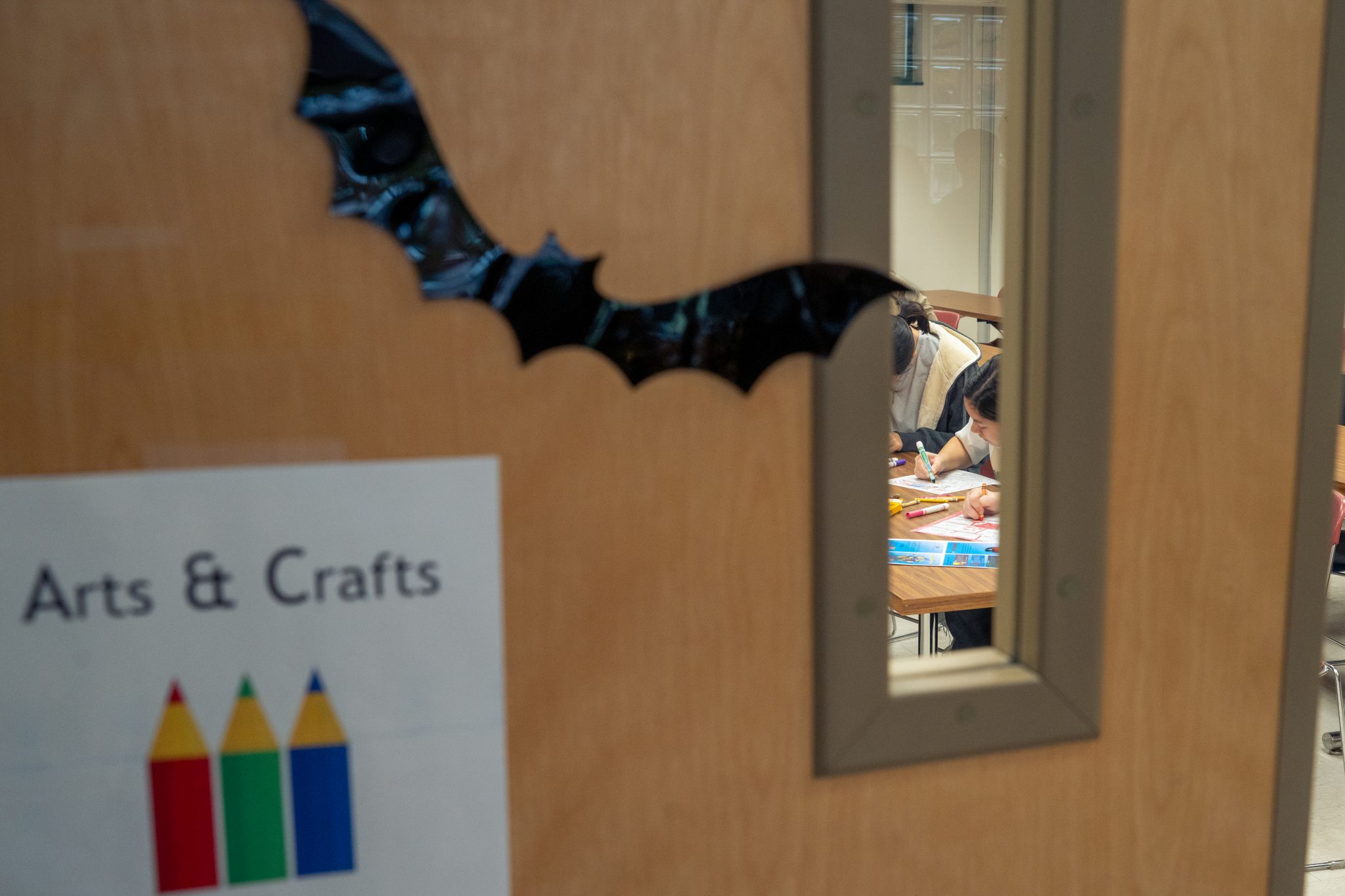Pumpkins, bat-themed garlands and colorful streamers filled the animal science and agricultural engineering building Wednesday as dozens of community members attended the eighth annual Bat Fest at the University of Maryland.
The event, hosted by this university’s Wildlife Society, aims to educate the community about the importance of bats and conservation. Wednesday’s event offered crafts, cookie decorating and bat trivia.
Shannon Browne, a senior lecturer in this university’s environmental science and technology program, helped the Wildlife Society organize the event. Preserving bats is especially important amid increasing threats to the species’ conservation, she said.
“We have a lot of people who are nervous about having bats in their immediate area,” Browne said. “But we get a lot more benefits from having them in the area than the reasons we’re concerned about.”
White-nose syndrome, a bat-killing disease that emerged in the early 2000s, and significant biodiversity loss in the last 50 years have harmed bat preservation efforts, according to Michael Ellis, a horticulturist at this university’s arboretum and botanical gardens who attended the event.
[UMD researchers’ ‘nose on a chip’ device could technologically replicate sense of smell]
Without bats to regulate insect population, there could be an increase in mosquito-transmitted diseases and ecosystem imbalances, Ellis said.
“These are all really important issues that are all tied together, and so our society really depends on all of this,” Ellis said.
Catherine Worsnop, an assistant professor in this university’s public policy school, attended the event with her 5-year-old son. She said their favorite parts of the event were making an origami bat and talking with students.
Many activities at Bat Fest were geared toward families because of the importance of educational resources, according to Wildlife Society secretary Taylor Sinclair.
“The main purpose is educating the community on bats because they’re kind of stigmatized in some senses, not really known about even though they are fairly common in Maryland,” the senior environmental science and technology major said.
[UMD graduate students create board game to promote multiculturalism]
The event pulled in other scientific education, too. Rosalie Bull ran a table lined with rows of native plants. As a campus engagement lead for Garden for Wildlife — a National Wildlife Federation initiative — she works with student groups around Washington, D.C., to promote student-led wildlife gardening.
Bull said her favorite part of the event was talking with students. She said she was surprised at how many already knew the benefits of native plants.
“We’re hoping to, in the long, long term, change the cultural aesthetic that prioritizes currently monoculture lawns into one that prioritizes biodiversity, wildlife habitat, that sort of thing,” Bull said.
For Ellis, outreach events such as Bat Fest are important to connect with the community and provide information about how different aspects of nature intersect with one another.
“We’ve got students, we’ve got faculty, staff, alumni, even little kids here that are in elementary school are at this Bat Fest,” Ellis said. “Hopefully it’s really eye-opening for some people to see how connected everything is ecologically and with our society.”



